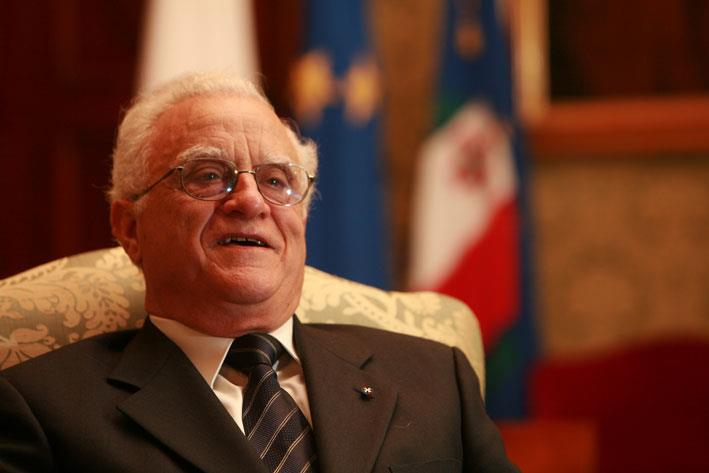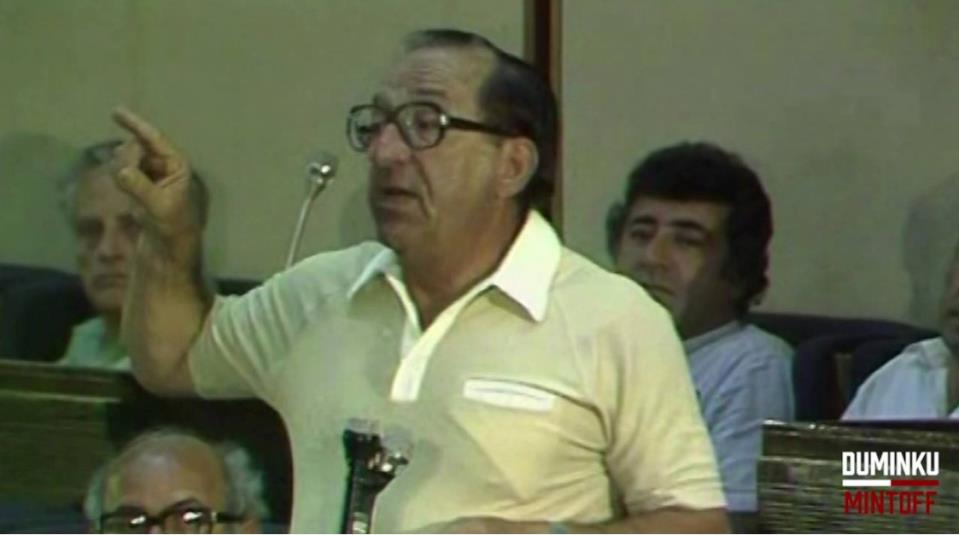Come next January, Joseph Muscat will become the third Prime Minister to step down while in office without calling an election – but his resignation obscures that of the first two for the seriousness of the reason behind his quitting.
He follows in the footsteps of Dom Mintoff, in the 1980s, and Eddie Fenech Adami, in the 2000s – the first after a skewed election result and the second after leading Malta on the doorstep of the European Union.
Muscat will step down after a new Labour leader is elected on 12 January 2020, with his departure coming amidst a political crisis brought about by the alleged involvement of members of his office in the murder of journalist Daphne Caruana Galizia and his handling of the matter.
Looking back in time, we can compare the circumstances surrounding Muscat’s departure to that of his counterparts.
The most recent out of the two examples is that of Eddie Fenech Adami, who spent 15 years in the Office of the Prime Minister leading the PN in government having first taken on the head of government role on 12 May 1987. He subsequently won the 1992, 1998, and 2003 election, losing only in 1996 when Alfred Sant led the Labour Party to what would be a short-lived spell in government.

Fenech Adami first announced his intention to kick-start the process within the PN to elect a new leader in his stead early in February of 2004, and he retained his seat as Prime Minister until the new leader – Lawrence Gonzi – was elected. At the time, Malta was on the cusp of joining the European Union.
Gonzi won 59.1% of the votes in the leadership to Louis Galea’s 15.5% and John Dalli’s 29.4%. Galea was knocked out of the running, while Dalli withdrew his candidature in view of the fact that Gonzi had already obtained over half the votes. Gonzi went on to take 94% of the votes to be elected the PN’s new leader and hence Prime Minister on 4 March 2004.
Fenech Adami resigned from the role of Prime Minister and from his role in Parliament once the deputy leadership contest within the party had concluded. He officially stepped down on 23 March, with Gonzi taking office on the same day. He was soon afterwards nominated as Malta’s President of the Republic.
While there are similarities in how Fenech Adami stepped down from his premiership to how Muscat is handling his impending departure, it should be noted that the backdrop to Fenech Adami’s resignation was altogether different than that which Muscat is facing.
Fenech Adami had won a general election less than a year prior, and Malta was on course to enter the EU that coming May. His own leadership of the country was revered abroad – in fact when the story of his impending departure first broke, then-European Commissioner Romano Prodi said that he was sorry to hear of Fenech Adami’s resignation, and hoped that his transitional period would be 20 years long.
This contrasts with the European view of Muscat – just this week MEPs took a very dim view of his leadership, with 581 MEPs voting in favour of a resolution for the embattled Prime Minister to step down immediately. Only 26 voted against the resolution. The Labour Party’s four MEPs were the only ones from Muscat’s political group the S&D to vote against the resolution.

The circumstances surrounding the resignation of Dom Mintoff in 1984 meanwhile were altogether more unstable from a constitutional point of view.
Mintoff had led the Labour Party to electoral victory in 1981 – but it was a victory that ended up being wrought in controversy: Labour may have won the most seats – 34 to the PN’s 31 – but the PN had won the most votes.
Mintoff had said he would not govern under such circumstances, but after pressure from his party counterparts he accepted the President’s invitation to form a government.
It would however be a period characterised by protests led by the then Opposition leader Fenech Adami and a period of heightened political tension, with incidents of political violence punctuating those years.
The pressure eventually led Mintoff to step down, with Karmenu Mifsud Bonnici eventually taking his place in 1984, having been nominated by Mintoff.
Mifsud Bonnici continued without calling an election, but the political instability in the country continued up until he narrowly lost the 1987 elections which were held under the auspices of new regulations which – aided by Mintoff himself – meant that the party with the most votes would automatically win the most seats, hence avoiding a situation like that of 1981.